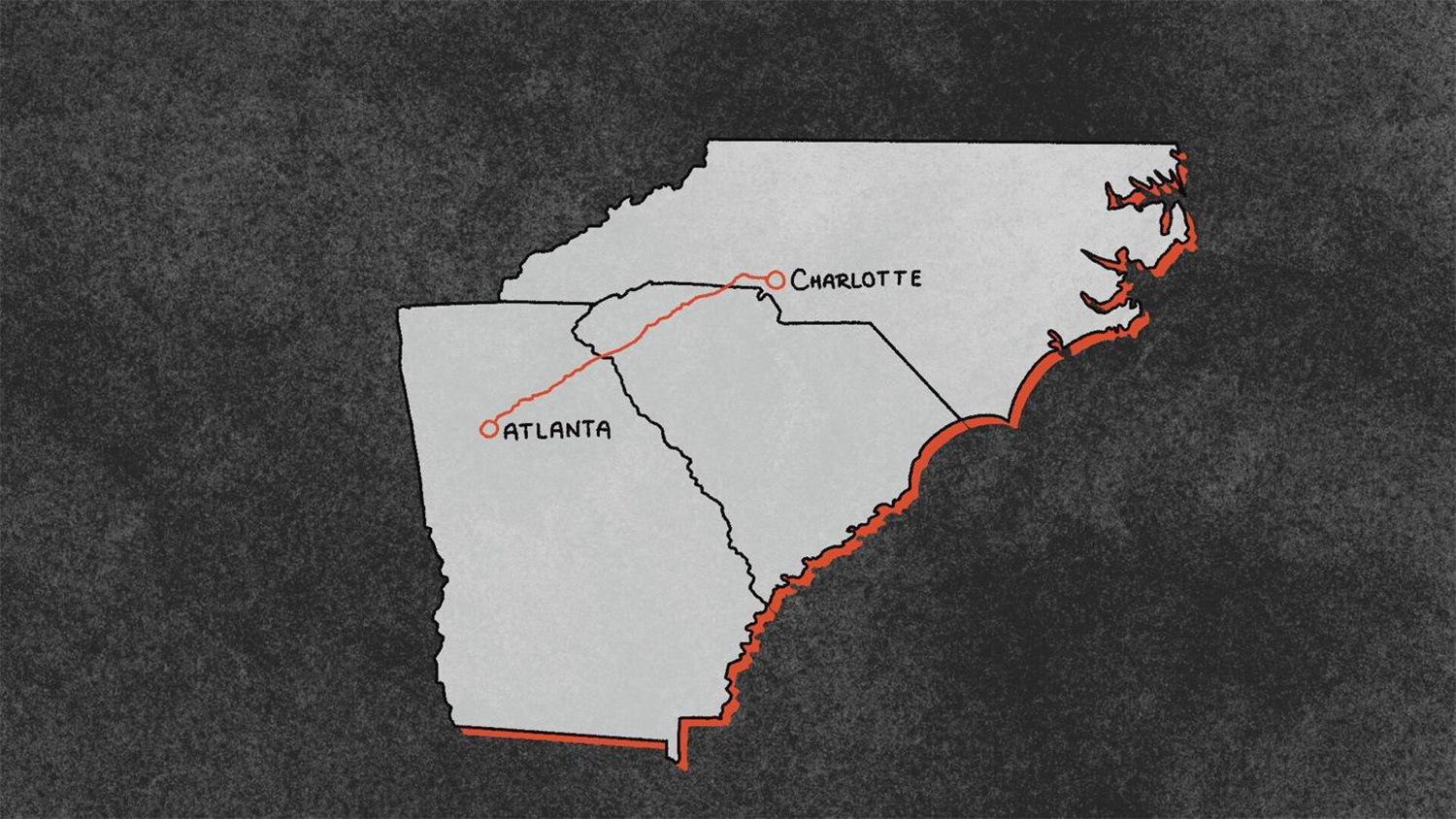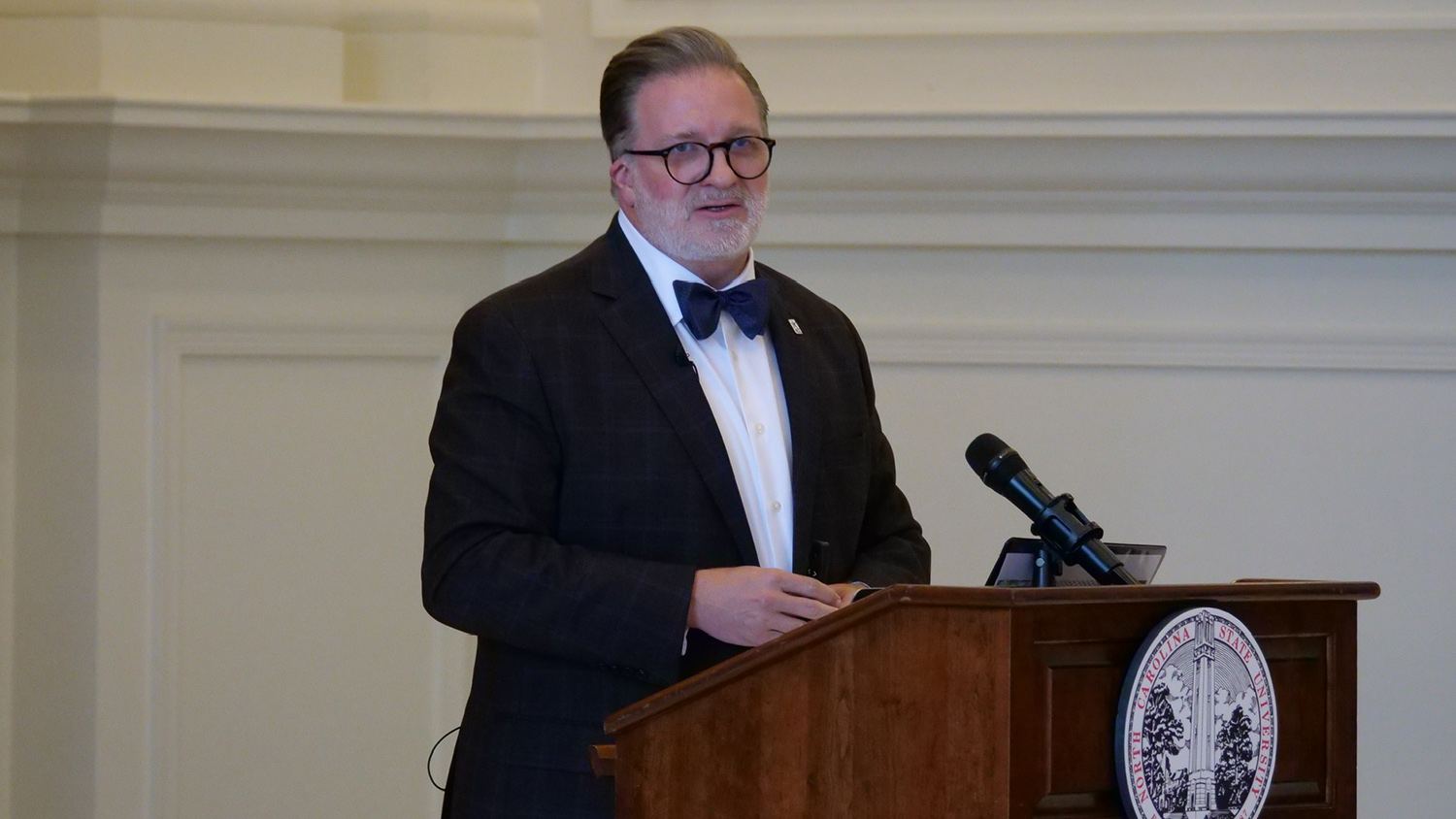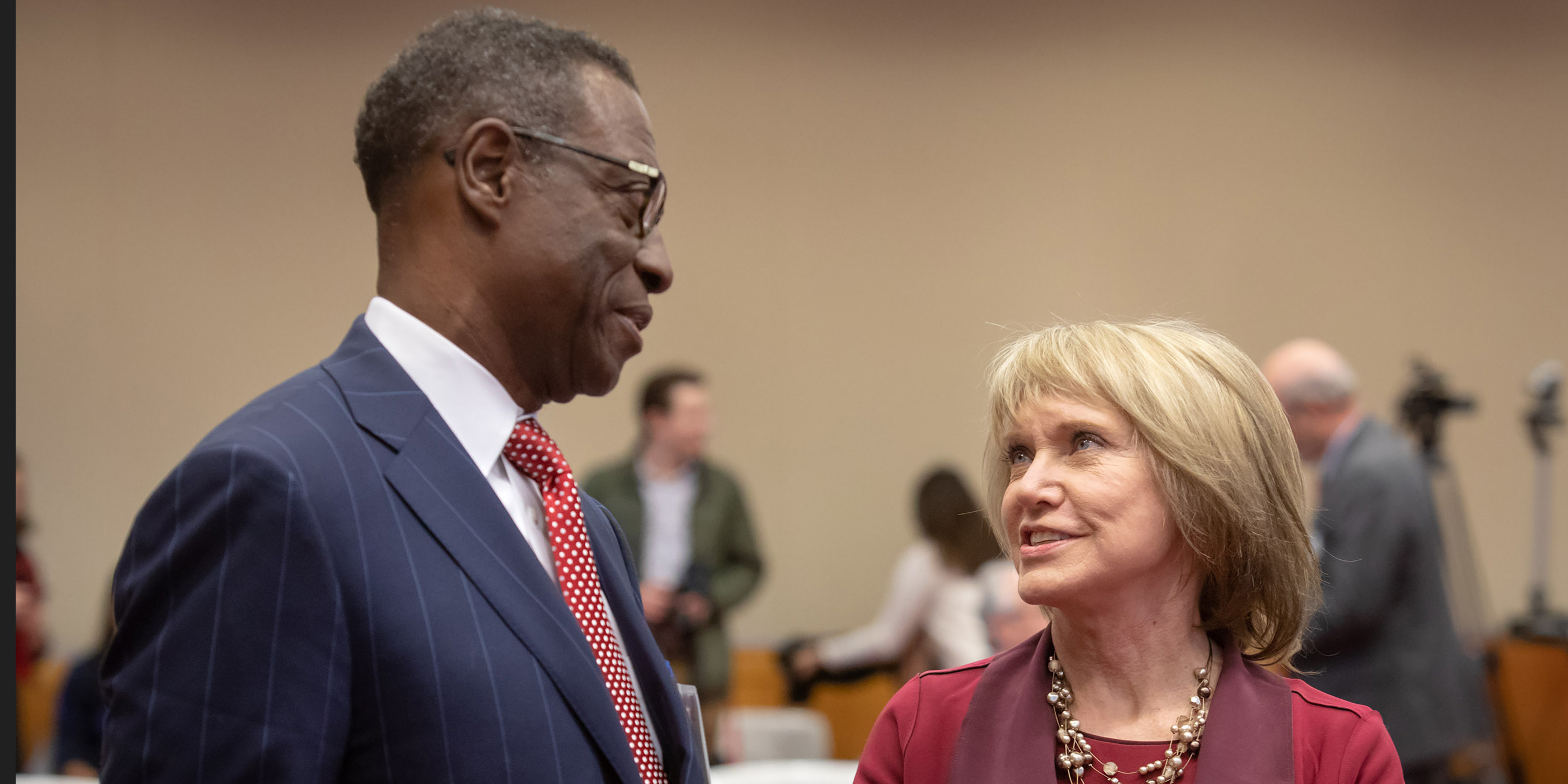‘Being Part of This Helped Me Know That You Can Do Big Things:’ Students, Teachers Grow Through Associate Professor DeLeon Gray’s iScholar Project
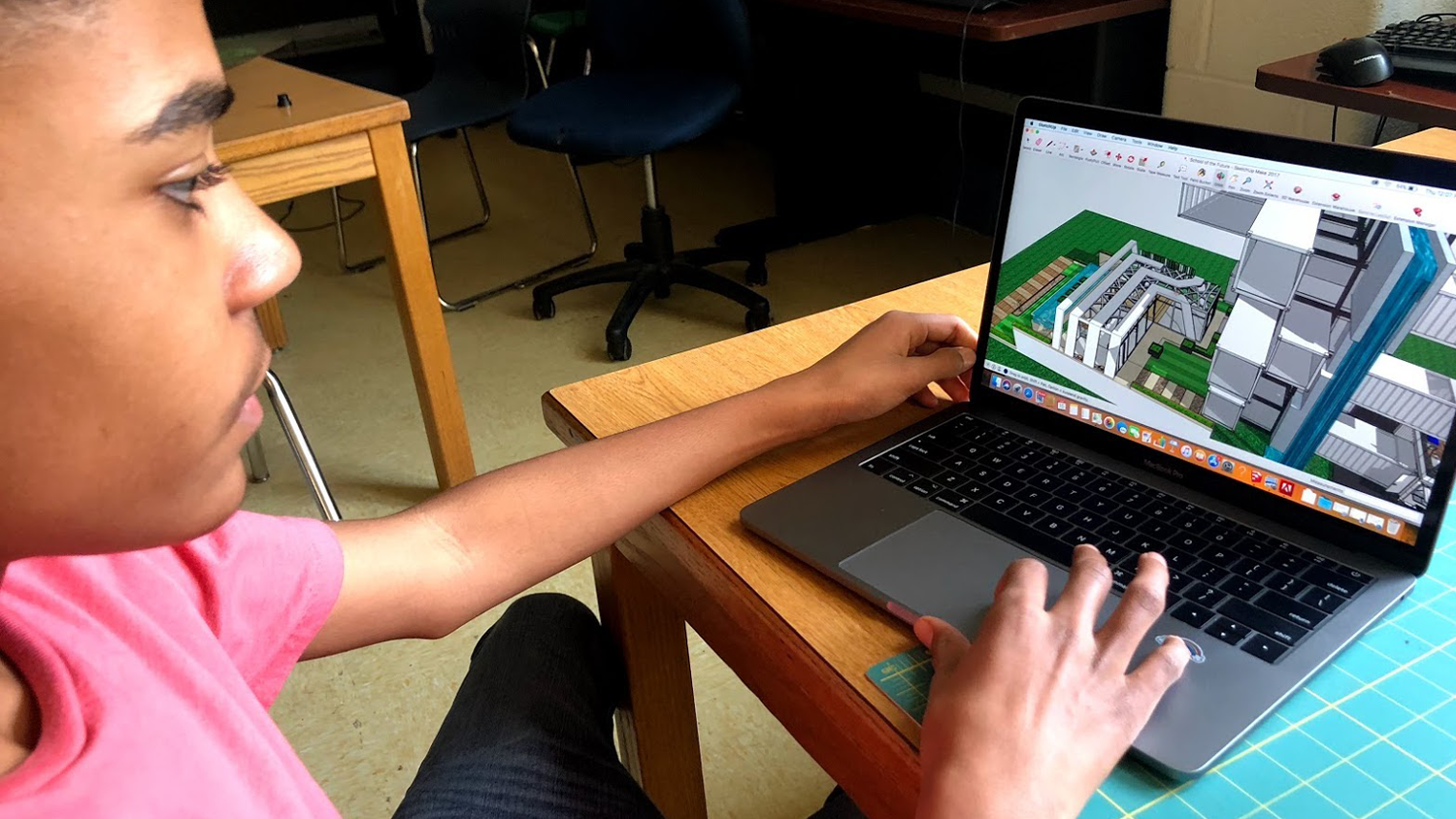
Every Monday evening, Mikal Ali, a student in the International Baccalaureate program at Hillside High School in Durham, has a standing phone call with DeLeon Gray, an associate professor of educational psychology and equity with NC State’s College of Education.
During one recent phone conversation, Ali spoke with Gray about an upcoming history essay and asked for pointers on how to tackle the assignment. Gray, Ali said, helped him understand that the key to writing a successful essay is picking a point of view and making a convincing and persuasive argument for that perspective.
“Being able to have a phone call with someone that can just, right away, know how to help me has been a good experience,” Ali said.
For the past two years, Ali has participated in iScholar, an after-school program developed by Gray that gives students the opportunity to collaborate on meaningful projects and speak to issues they identify within their own communities while developing a sense of belonging.
For Ali, his years participating in the program have taught him that it’s OK to reach out to people like Gray for help, and to use the resources available to him to become the best student he can be.
“A lot of times, people don’t ask for help, and I think iScholar has helped me understand that asking for help is OK and that you should be coming to tutoring and the before-hours and after-hours [sessions] for your classes to be able to really understand,” he said. “I’m able to have resources at-hand when I need help, so that’s what I saw iScholar as—an opportunity to have more help in addition to my teachers at school.”

Valuing Teachers’ Expertise
Developed in 2012 and supported by a grant from the National Science Foundation, iScholar is a community-engaged partnership between NC State students and faculty and Durham teachers, educators, leaders and students that aims to honor their voices and perspectives.
“What was really special about the partnership was that they didn’t come in as researchers thinking that they were telling us what we needed to do as teachers,” said Joanna Ali, a former STEM teacher at Neal Middle School in Durham who engaged in professional development through iScholar. “They really centered our expertise as teachers and helped me feel like I had something special to offer as it related to research.”
Although Joanna Ali and other STEM teachers were the ones working closely with iScholar on projects and professional development opportunities, the reach of the project extended beyond those classrooms.
Kia Allah was a Spanish teacher at the school when the iScholar team approached her to help translate a survey for Spanish-speaking students.
Allah was impressed by the fact that iScholar didn’t just want to translate the text from English to Spanish, but wanted her to be present while the survey was administered to make sure that students understood the content and could speak with somebody in their native language if they had any questions.
“I think the most interesting part was that it was going to be really inclusive of people of color and that I was going to be surrounded by other people that looked like me.” –iScholar participant Ariel Green
As a language teacher who had always focused on elements of culture, Allah was impressed with iScholar’s explicit efforts to make sure that the work they were doing was meaningful to students from all different backgrounds.
She was really inspired to begin learning more about the program, however, when she saw the iScholar team lead a lesson about the importance of a person’s name, how it is a piece of their identity and how the pronunciation and meaning of that name can be impactful.
“That was something that really caught my eye and really drove me to take a deeper look at this group that was coming into the building,” Allah said. “I had been teaching for almost 10 years, and my conversations with Dr. Gray and his thoughts about the importance of teachers and our expertise and knowledge bank was really moving and resonated with me.”
As a result of their experiences with iScholar, Allah and Joanna Ali both enrolled in the College of Education, where they are earning doctoral degrees while working as research assistants on the iScholar project. Allah, who is earning her Ph.D. in the Teacher Education and Learning Sciences educational equity program area of study, focuses largely on programming for iScholar, while Joanna Ali, who is earning her Ph.D. in the Teacher Education and Learning Sciences educational psychology program area of study, focuses largely on curriculum and instruction.
Joanna Ali said that her work with iScholar, both as a teacher and a researcher, have helped her to succeed in her graduate studies in ways she did not expect.
“iScholar has allowed me to do the work that I’m passionate about while learning about research in a way that has a lens of community engagement. I think a lot of people are not able to see that side of research because they’re not able to be inside of schools or work with school districts and students,” she said. “We’ve fostered these relationships with key stakeholders and we’re able to be in the communities that we want to be in. It’s just helped me flourish as a graduate student and really learn how to do that work that I want to do when I graduate from NC State.”
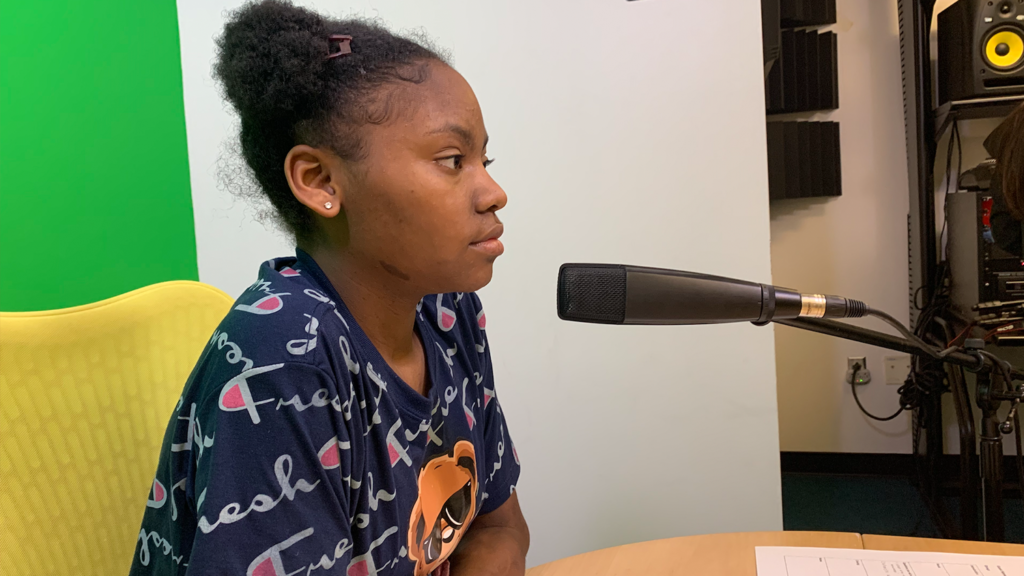
Watching Students’ Confidence Grow
As Joanna Ali and Kia Allah transitioned from their roles as classroom teachers to researchers, they’ve had the opportunity to continue to work with their former students through iScholar and watch them grow as a result of their engagement with the project.
One of those students is 10th grader Ariel Green, who began interacting with iScholar content in Joanna Ali’s sixth grade class and eventually joined the program’s after-school offerings.
Through iScholar, Green has engaged in a variety of projects, including working with a group of students who won a national prize for their design of a school that honored students’ cultures and fostered a sense of belonging for all.
Her favorite project was working with Gray to make lapel pins because the experience taught her about the possibilities of owning a business and working with finances, which she said she was not able to learn about in her classes at school.
Most significantly, she said her experiences with iScholar have taught her that she is able to accomplish more than she originally believed she could.
“Being a Black girl, it may not always seem like you have a bunch of opportunities to do certain things and being part of this helped me know that you can do big things other than what people try to stereotype you into doing,” she said.
Allah said she has watched students’ confidence grow tremendously, and their creativity and openness expand as they participated in iScholar.
She believes this change is the result of iScholar’s student-centered approach, where adolescents’ ideas are supported and embraced, and they are encouraged to analyze difficult concepts and share their ideas and perspectives in ways that might not always be possible in a traditional classroom setting.

Positioning students as their own experts and giving them a sense of agency, Allah said, has shown students what they are truly capable of.
“There are messages that students receive from society as a whole that impacts how they view the world and themselves, and I think iScholar does a great job of offering them a counternarrative to the dominant narrative that may be around the area where they’re from or who they are as people,” she said. “One of the impacts I’ve seen is just them growing as people and in their level of consciousness and confidence.”
As students’ confidence in their abilities rise, iScholar also helps them envision a future beyond middle and high school.
College professors, Joanna Ali said, visited her classroom when she was a middle school teacher in order to mentor students and answer their questions. Students were also invited to visit NC State, where they were able to spend time in the libraries and the African American Cultural Center to learn about what a university could offer to them.
Although Mikal Ali said he does not know yet what he would like to study in college, his experiences with iScholar have helped him to better understand the significance of getting a college education.
“It helped me to understand what college is for and that it’s not just somewhere you go because people tell you to,” he said. “It’s to expound your learning and to be able to specialize in a certain subject that you’re passionate about. Then, once you specialize, you’re able to bring innovation to the world.”
- Categories:
